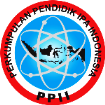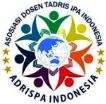Assessing Effectiveness of Animated Instructional Media on Academic Performance and Retention of Genetics Concepts
Abstract
The present study was carried out to assess the effectiveness of animated instructional media on academic performance and retention of genetic concepts among senior secondary school on biology students in Sokoto State. Adopted through Quasi Experimental design involving pre-test, post-test and post-posttest on two equivalent groups as experimental and control, the population on the study was 10148 SS III Biology students. In this regard, four intact classes were chosen with sample size of 238 SSIII students. Genetic Concept Performance and Retention Test (GCPRT) was the instrument used for data collection. Animated Instruction Media was used as instructional material to teach the experimental group while demonstration method was used to teach the control group. Independent sample t-test was used to test the four (4) hypotheses formulated in the study. The esults obtained in this line of research revealed that there was a significant difference in the academic performance and retention ability between students taught using Animated Instructional Material and those taught using demonstration method. It was therefore recommended for other senior secondary school teachers to harness the considerable benefits of technology, particularly animations, in teaching genetics and other related concepts.
Keywords: animated, media, academic performance, retention.
Full Text:
PDFReferences
Abu Bakar, M. H., Ya’cob, S. N., Mohd Bajury, M. S., & Wan Rosli, W. R. (2021). Copyright Concerns for Educators: Online Learning Post Pandemic Effect. Malaysian Journal of Social Sciences and Humanities (MJSSH), 6(10).
Adegboye, M.C., Bello, G., & Isaac, O.A. (2018). Conceptions of the Nature of Biology Teachers in Ilorin, Kwara State, Nigeria. MOJES: Malaysian Online Journal of Educational Science. 5(3), 1-12.
Aggarwal, J.C. (2008). Essentials of Educational Psychology. Delhi. VKAS Publishing House pvt ltd. 287-292.
Antó, J. M., Martí, J. L., Casals, J., Bou-Habib, P., Casal, P., Fleurbaey,
M., Frumkin, H., Jiménez-Morales, M., Jordana, J., Lancelotti, C., Llavador, H., Mélon, L., Solé, R., Subirada, F., & Williams, A. (2021). The Planetary Wellbeing Initiative: Pursuing the Sustainable Development Goals in Higher Education. Sustainability (Switzerland), 13(6).
Anyika, V. O., Anikelechi, I. G., & Thobejane, T. D. (2021). The Impact of Covid-19 on Nigerian Education System. Journal of Intellectual Disability - Diagnosis and Treatment, 9(2).
Gopalan, M., Rosinger, K., & Ahn, J. Bin. (2020). Use of Quasi-Experimental Research Designs in Education Research: Growth, Promise, and Challenges. Review of Research in Education, 44(1).
Aremu, A, & Abiodun, S. (2010). Computer Animation and Academic Performance of Nigerian Senior Secondary Schools Students in Biology. Journal of the Research Centre for Educational Technology (RCET). 6(2), 148 - 161
Ayodele, E. A. (2009). Effective Improvisation in Primary Science. Teachers’ Association of Nigeria (STAN) , 41st Annual Conference Proceedings, 339 – 341.
Bamidele, E.E & Yoade, F.B. (2017). Effects of Modes of Computer Animation Instructional Packages on Students’ Achievement in Osun State Secondary Schools Biology. International Journal of Innovation and Research in Education Sciences, 4(4), 2349-5219.
Barak, M., Ashkar, T, & Dori, Y.J (2010). Teaching Science via Animated Movies; its Effect on Students Learning Outcomes and Motivation. Proceedings of the Chais Conference on Instructional Technologies Research. The Open University of Israel.
Bello., M. R. (2014). Effect of Computer Aided Instruction Package on Performance, Attitude and Retention of Genetics Concepts Among Secondary School Students in Niger State, Nigeria A Thesis Submitted to Postgraduate School Usmanu Danfodiyo University Sokoto.
Bichi, S.S. (2002). Effects of Problem Solving Strategy and Enriched Curriculum on Secondary School Student’s Performance in Evolution Concepts. Journal of Department of Education A.B.U Zaria, Nigeria, 3(1), 132-137.
Enohuen, V. O. (2015). Effect of Instructional Materials on Achievement and Retention of Biology Concepts among Secondary School in Delta State, Nigeria. A thesis submitted to the Department of Science Education, Ahmadu Bello University Zaria, Kaduna Nigeria.
Federal Government of Nigeria (2013). Revised National Policy on Education. Lagos Press.
Ifeobu, H. N. (2014). Evaluation of the Implementation of National Curriculum for Secondary School Biology in Anambra State, Nigeria. A Doctorial Thesis Submitted to the University of Nigeria, Nsuka, Enugu State.
Gambari, A.I., Yaki, A.A., Gana, E.S & Ughouwa, E.Q. (2014). Improving Secondary School Students’ Achievement and Retention in Biology through Video-based Multimedia Instructions. Journal of Scholarly Teaching, Vol 9.
Hamutoglu, N. B., Unveren-Bilgic, E. N., Salar, H. C., & Şahin, Y. L. (2021). The Effect of E-Learning Experience on Readiness, Attitude, and Self-Control/ Self-Management. Journal of Information Technology Education: Innovations in Practice, 20.
Imhanyehor, G. O. J. (2021). Digital Literacy and Primary Educational System in Nigeria. Journal of Public Administration, Finance and Law, 20.
Kim, H., Lee, E. C., Seo, Y., Im, D. H., & Lee, I. K. (2021). Character Detection in Animated Movies Using Multi-Style Adaptation and Visual Attention. IEEE Transactions on Multimedia, 23.
Krishnan, N. (2021). A Hemodialysis Curriculum for Nephrology Fellows Using A Blended Learning Approach: Best of Both Worlds? Journal of Nephrology, 34(5).
Kpolovie, J.P. (2010). Advance Research Methods: New Owerri: Springfield Publishers Ltd.
O‘Day, D.H (2007). Animated Cell Biology: A Quick and Easy Method for Making Effective High Quality Teaching Animations. CBElifesci.educ.5. 255-263.
Rajaram, K. (2021). Learning Interventions: Collaborative Learning, Critical Thinking and Assessing Participation Real-Time. In Evidence-Based Teaching for the 21st Century Classroom and Beyond.
Ramalingam, S.T (2010). Modern Biology for Senior Secondary Schools. African Publishers plc, Book house trust, P.M.B 1639, Onitsha, Nigeria. ISBN: 978-978-175-530-9.
Salisu, A. (2015). Impact of Animated Media Strategy on Achievement, Retention and Interest among Secondary School Geography Students in Western Concepts , Katsina State, Nigeria. A PhD Thesis Submitted to the School of Postgraduate Studies, Ahmadu Bello University, Zaria.
Thomas, O.O. & Israel, O.O. (2014). Effectiveness of Animation and Multimedia Teaching on Students Performance is Science Subjects. British Journal of Education, Society and Behavioral Science, 4 (2).
Versky, B., Morrison, J. B., & Bétrancourt, M. (2002). Animation: Can it Facilitate? International Journal of Human-Computer Studies, 57(4), 247-262
Usman, Y. D., & Chinyere, M. G. (2021). Quality Assurance in Nigeria’s Education System: Prospect and Challenges. EduLine: Journal of Education and Learning Innovation, 1(2).
Williams, W. R. (2020). Examining Studio Ghibli’s Animated Films: A Study of Students’ Viewing Paths and Creative Projects. Journal of Adolescent and Adult Literacy, 63(6).
Yan, B. (2021). Problems and Countermeasures in the Process of Applying Multimedia Technology in Basketball Teaching. Wireless Communications and Mobile Computing, 2021.
Yulianti, E., Zhafirah, N. N., & Hidayat, N. (2021). Exploring Guided Inquiry Learning with PhET Simulation to Train Junior High School Students Think Critically. Berkala Ilmiah Pendidikan Fisika, 9(1).
Карпова, С. И., Муродходжаева, Н. С., Цаплина, О. В., & Каитов, А. П. (2020). The Pedagogical Potential of Animation in The Education of Preschool and Primary School Children. Tomsk State Pedagogical University Bulletin, 6(212).
DOI: http://dx.doi.org/10.24014/jnsi.v5i1.16949
Refbacks
- There are currently no refbacks.

Journal of Natural Science and Integration
E-ISSN: 2620-5092 P-ISSN: 2620-4967
Published By:
Department of Science Education, Faculty of Education and Teacher Training,
State Islamic University of Sultan Syarif Kasim Riau, Indonesia
Mailing Address:
Jl. H.R Soebrantas Km. 15 No. 155
Kelurahan Simpang Baru
Kecamatan Tuah Madani, Pekanbaru, Riau, Indonesia
Email: jnsi.tadrisipa@uin-suska.ac.id
Indexed By:
Journal of Natural Science and Integration is licensed under a Creative Commons Attribution 4.0 International License.


_-_Copyy2.png)






.jpg)
.png)
.jpg)
.jpg)




